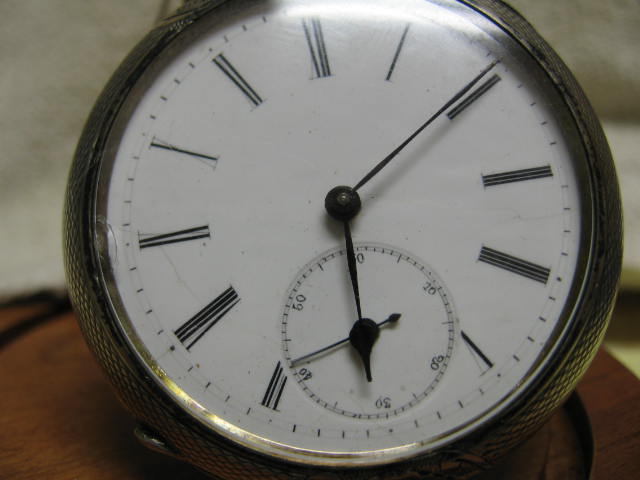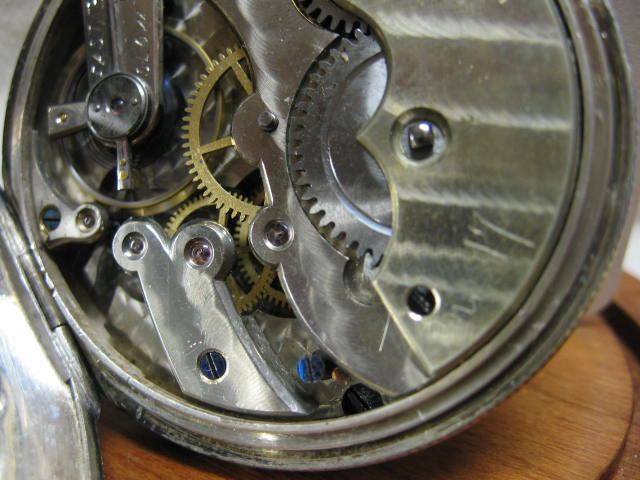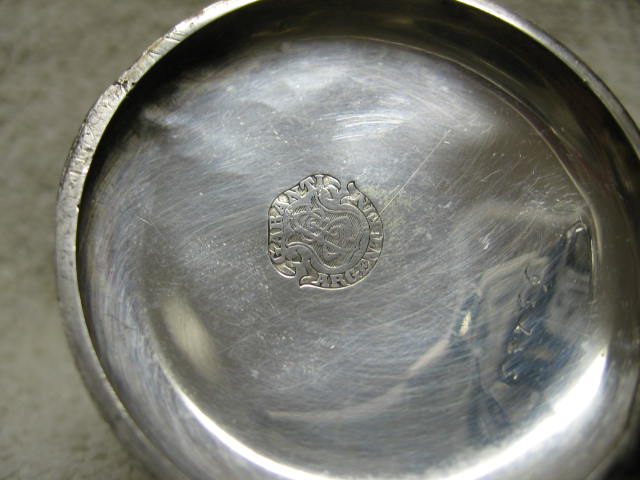
| WWT Shows | CLICK TO: Join and Support Internet Horology Club 185™ | IHC185™ Forums |

|
• Check Out Our... • • TWO Book Offer! • |
Welcome Aboard IHC185™  Internet Horology Club 185
Internet Horology Club 185  IHC185™ Discussion Site Main Page
IHC185™ Discussion Site Main Page  Horological Discussions, Questions and Answers
Horological Discussions, Questions and Answers  European Pocket Watch Forum
European Pocket Watch Forum  No. 17 - That's all there is....
No. 17 - That's all there is....
 Internet Horology Club 185
Internet Horology Club 185  IHC185™ Discussion Site Main Page
IHC185™ Discussion Site Main Page  Horological Discussions, Questions and Answers
Horological Discussions, Questions and Answers  European Pocket Watch Forum
European Pocket Watch Forum  No. 17 - That's all there is....
No. 17 - That's all there is....Go  | New Topic  | Find-Or-Search  | Notify  | Tools  | Reply to Post  |  |
| IHC Life Member |
Hello All, I have no information on this watch all, other than what you see. Any help will be apprecitated.... There is branding of sorts on the inside of the rear cover with the words,"Garanti" on top and "Argent Fin" on the bottom with the numbers 63766 underneath. Here are a few photo's.... Regards, Jerry  | ||
|
| IHC Life Member |
Rear of Case  | |||
|
| IHC Life Member |
The movement....Notice the No 17 scratched in...  | |||
|
| IHC Life Member |
Inside the rear cover.  | |||
|
| IHC Life Member |
Another of the movement.  | |||
|
| IHC Life Member |
Here is another of the movement.  | |||
|
| IHC Life Member |
and one more of the inside of the rear cover....  | |||
|
Beautifully engraved watch Jerry, and in quite nice nick too. I've had a quick look through my international hallmarks book, and can't see anything that jumps off the page. The scrolled lettering inside the guarantee pledge bears strong similarities to French commune marks ('communautées' - such as Paris, Lyons, Amiens etc). Rub is, all those illustrated fell from use well before the era of your watch. I can find nothing even close for Swiss marks. 'Garanti Argent Fin', translates to (past tense) 'Guaranteed Fine Silver' which equates to .925 Sterling minimum as a rule. I would put the movement around 1900-ish give or take a decade either way. The regulator index has a boot as well as a curb pin, rather than the erlier 'twin pin' style, and if the boot swivels (with a screwdriver slot in it), would date it later than the fixed boot type. The dial is held by knife edge screws and not taper pins, again a later refinement. As a Swiss lever escapement, it's got the earlier 'sidelever' arrangement, rather than the 'In Line lever' type - which is often played upon by retailers touting it as an improvement, and engraving it on the inner dome of the case. The centre pinion looks as if it may have a taper pin through a hollow post, onto which the cannon pinion is held, with a small extension onto which the minute hand is pressed. Earlier types had the setting square on this, and later types used a one piece solid pinion which extended beyond the dial plate for the cannon. Chances are if you whip the dial off it will have Geneva stopwork, as it looks to be a decent movement. That's quite a chunk of metal supporting the barrel arrangement too, frequently the 'achilles heel' of Swiss watches from that era. I suppose I ought to sit down and doccument when all these changes took place, as it would very often nail down more accurately the period of a movement. Sorry I can't help more with it at this stage. John | ||||
|
| IHC Life Member |
You have provided a wealth of information, John, and I certainly appreciate all of it. I am intrigued by early English watches, this watch not included, as soon as I can get some photos of a couple that I have I will post them. One especially, supposedly it comes from the Sir John Bennett era. I will be interested in your comments regarding that watch. Thanks again, I appreciate you very much.... Regards, Jerry | |||
|
Thanks Jerry, always happy to help when I can. Have to say, that English and Swiss watches for the 1800's and early 1900's seem to provide more intrigue than we can ever solve, bit like genealogy really ......... and equally as fascinating ...... I would certainly be very interested to see your other watches. BTW, forgot to mention the 'No 17', it's probably a reference number scratched on by a saleroom oaf at some time, can't see any self respecting watchmaker defacing a plate like that ........ then again they were happy to deface solid gold cases the same way with repair numbers ........ ? Best regards John | ||||
|
| Powered by Social Strata |
| Your request is being processed... |
|
©2002-2025 Internet Horology Club 185™ - Lindell V. Riddle President - All Rights Reserved Worldwide

